Importing Your Sticky Notes
- This article is for Windows only
Summary:
These instructions are for the program Sticky Notes that comes with Windows 7, 8 and 10. If you are using a different notes program, your data files may not be in the same location. This article will help you restore your Sticky Notes data and/or import them into the Sticky Notes program. Please choose an option that best describes your situation.
Solution:
The sections below are collapsed. Please click a section title to open / close the appropriate section.
In here we'll guide you through restoring your Sticky Notes files and then on how to import it into the program. There are a couple of things that need to be in place for the restore and import to work.
- Ensure that Sticky Notes is already installed on the computer.
- Ensure Recover Mode is enabled. This makes it so that no updates to files or any new files are backed up to Carbonite while in this mode and it lets the restore run as smooth as possible.
Let's begin by opening the Carbonite Backup Drive through the File Explorer window (alternatively called Windows Explorer in older Windows operating systems). Do this by double-clicking the Carbonite Backup Drive icon.
You'll see the Carbonite Backup Drive displayed. This shows all of the files in your backupA set of copies of your files on our servers. organized the same way they are on your computer.
Double-click the Backed Up Files icon.
Browse to the location where your Sticky Notes data file is located (i.e. where it was when you backed it up). The default location is as follows:
- Windows 7, 8 and 10:
- C:\Users\[User_Name]\AppData\Roaming\Microsoft\Sticky Notes\StickyNotes.snt
- Windows 10 Anniversary Edition:
- C:\Users\[User_Name]\AppData\Local\Packages\Microsoft.MicrosoftStickyNotes_8wekyb3d8bbwe
\LocalState\plum.sqlite
- C:\Users\[User_Name]\AppData\Local\Packages\Microsoft.MicrosoftStickyNotes_8wekyb3d8bbwe
Once you found the files, you can restore it with the help of the instructions below:
Restoring the Current Version
- In the Carbonite Backup Drive, right-click on the StickyNotes.snt or the plum.sqlite file and select Restore To....
- In the Browse for Folder window, select a location to restore and click OK.
Restoring an Older Version
- In the Carbonite Backup Drive, right-click on the StickyNotes.snt or the plum.sqlite file and select Restore previous versions...
- Select the version you want to restore, using the Last Saved On: and Size columns and then click Browse.
- Select a restore location and click OK.
- Click OK to start the restore.
How to Import Your Sticky Notes File
All you have to do here is open the program and import the files.
Please follow the instructions below to import your file into the program:
Importing Your Sticky Notes in Windows 7
Click the Windows Start button and select Computer to open Windows Explorer. Within Windows Explorer, double-click the C: drive.
Navigate to C:\Users\[User_Name]\AppData\Roaming\Microsoft\ and locate the Sticky Notes folder. If you do not have a Sticky Notes folder, click the New Folder button and name the folder Sticky Notes.
Note: [User_name] is the name that you use to log into your computer. If you do not know your username it may be something generic like "Owner" or "User." Windows also hides certain files and folders from your view. If you are unable to navigate to this location please show your hidden files and folders.
Move the restored StickyNotes.snt file from the desktop into the Sticky Notes folder. If there is a StickyNotes.snt file in the folder already, this action will prompt you for permission to overwrite the existing file with the one from the desktop.
Click the Windows Start button and type "sticky notes" into the search field. Click Sticky Notes in the search results.
Your restored sticky notes will display on your desktop.
Once you've finished your restore and got everything back into the program, you're all set. If you want to resume your back up again, please exit Recover Mode.
Importing Your Sticky Notes in Windows 8
After your Sticky Notes file has restored, open File Explorer by clicking the File Explorer icon in the taskbar.
In File Explorer, navigate to C:\Users\[User_Name]\AppData\Roaming\Microsoft\ and locate the Sticky Notes folder. If you do not have a Sticky Notes folder, click the New Folder button and name the folder Sticky Notes.
Note: [User_name] is the name that you use to log into your computer. If you do not know your username, it may be something generic like "Owner" or "User." Windows also hides certain files and folders from your view. If you cannot navigate to the location above, try showing your hidden files and folders.
Move the restored StickyNotes.snt file from the desktop into the Sticky Notes folder. If there is a StickyNotes.snt file in the folder already, this action will prompt you for permission to overwrite the existing file with the one from the desktop.
Open the Search charm by hovering your mouse over the bottom right of your screen and clicking Search, or by pressing the Windows Key + Q keys on your keyboard.
Type "sticky notes" into the Search field and click Sticky Notes in the search results.
Your restored sticky notes will display on your desktop.
Once you've finished your restore and got everything back into the program, you're all set. If you want to resume your back up again, please exit Recover Mode.
Importing Your Sticky Notes in Windows 10
After your Sticky Notes file has restored, open File Explorer by clicking the Start button (it looks like a Windows logo), then clicking File Explorer in the Start menu.
In File Explorer, navigate to C:\Users\[User_Name]\AppData\Roaming\Microsoft\ and locate the Sticky Notes folder. If there is no Sticky Notes folder, click the New Folder button and name the folder Sticky Notes.
Note: [User_name] is the name that you use to log into your computer. If you do not know your username it may be something generic like "Owner" or "User." Windows also hides certain files and folders from your view. If you are unable to navigate to this location, show hidden files and folders.
Move the StickyNotes.snt file you restored from the desktop to the Sticky Notes folder . If there is a StickyNotes.snt file in the folder already, this action will prompt you for permission to overwrite the existing file with the one from the desktop.
Click the Start button again, then click the Search the web and Windows field. Type "sticky notes" and click the Sticky Notes Desktop app search result.
Your restored sticky notes will display on your desktop.
Once you've finished your restore and got everything back into the program, you're all set. If you want to resume your back up again, please exit Recover Mode.
Importing Your Sticky Notes in Windows 10 Anniversary Edition
After your Sticky Notes file has restored, open File Explorer by clicking the Start button (it looks like a Windows logo), then clicking File Explorer in the Start menu.
In File Explorer, navigate to C:\Users\[User_Name]\AppData\Local\Packages\Microsoft.MicrosoftStickyNotes_8wekyb3d8bbwe and locate the Local State folder. If there is no Microsoft.MicrosoftStickyNotes_8wekyb3d8bbwe folder, try opening the Sticky Notes app and then closing it.
Note: [User_name] is the name that you use to log into your computer. If you do not know your username it may be something generic like "Owner" or "User." Windows also hides certain files and folders from your view. If you are unable to navigate to this location please show hidden files and folders.
Move the plum.sqlite file you restored from the desktop to the Local State folder. If there is a plum.sqlite file in the folder already, this action will prompt you for permission to overwrite the existing file with the one from the desktop.
Click the Start button again, then click the Type here to search field. Type "sticky notes" and click the Sticky Notes Desktop app search result.
Your restored sticky notes will display on your desktop.
Once you've finished your restore and got everything back into the program, you're all set. If you want to resume your back up again, please exit Recover Mode.





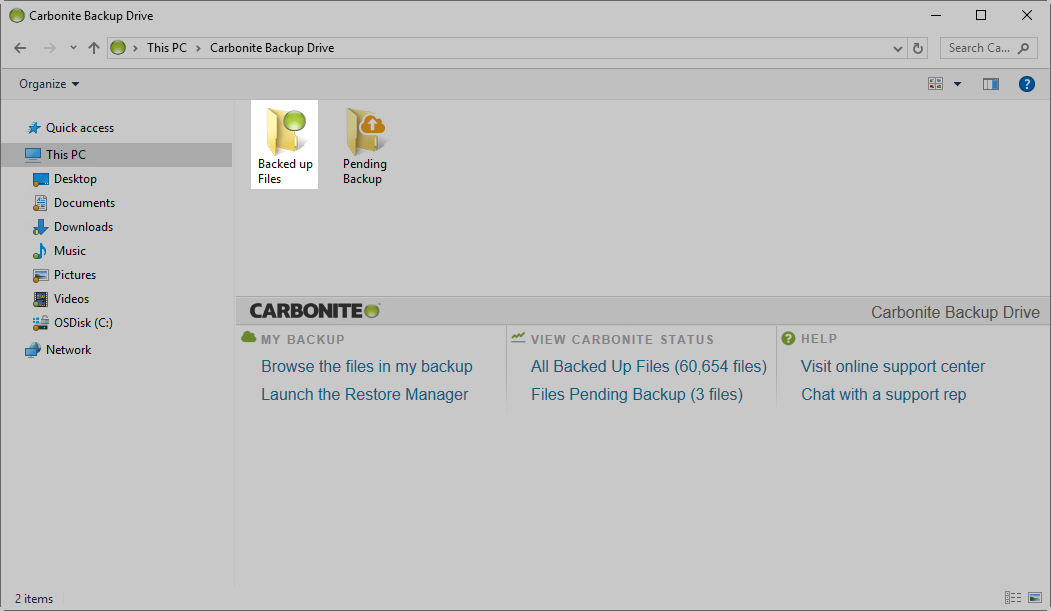

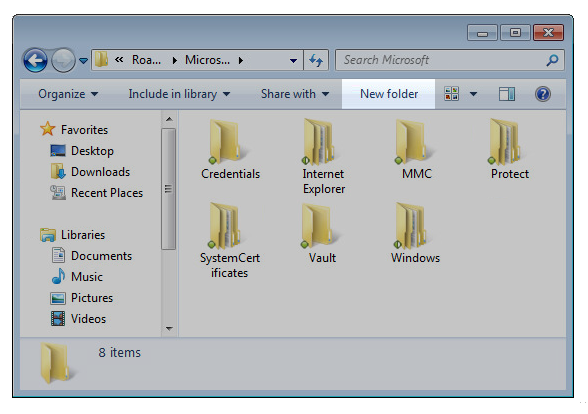
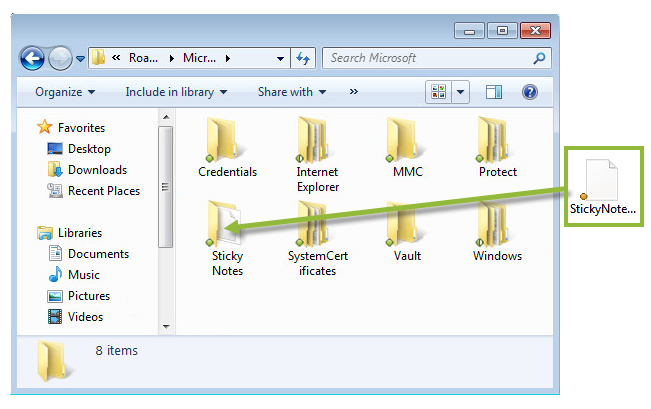
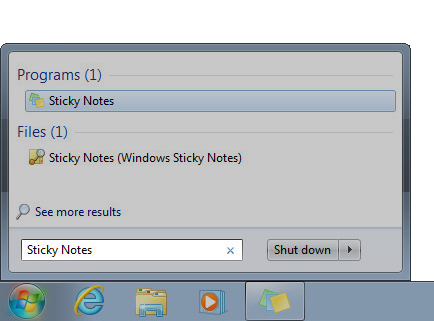
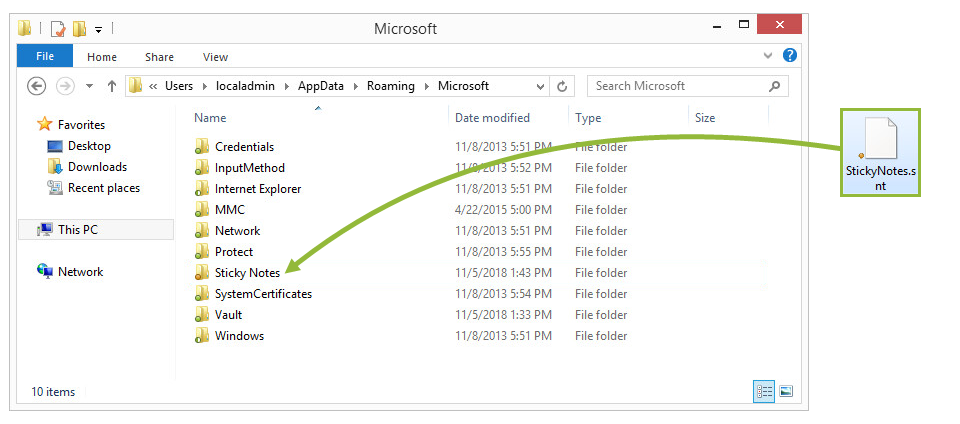
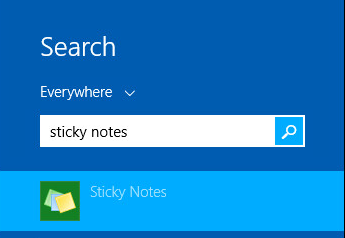

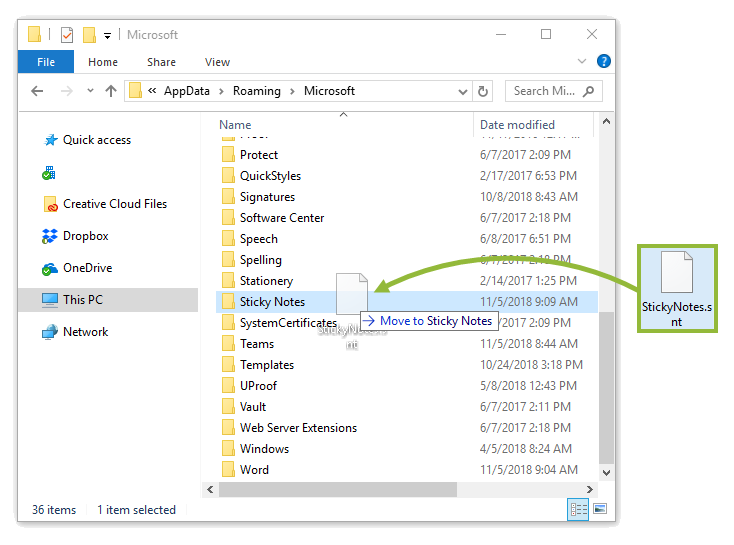
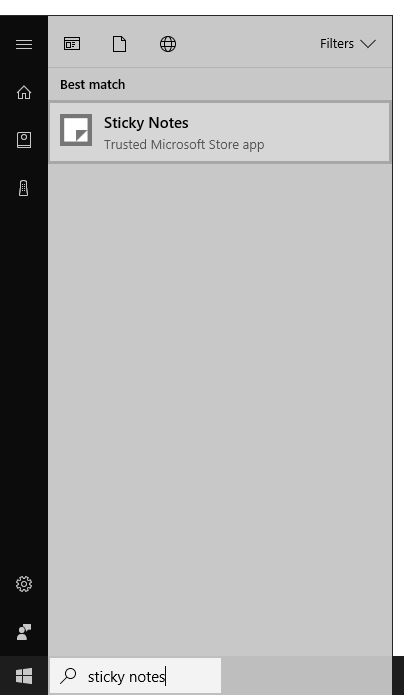
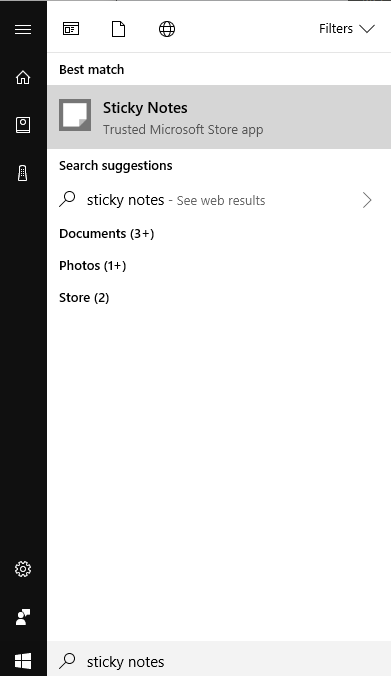
 Feedback
Feedback